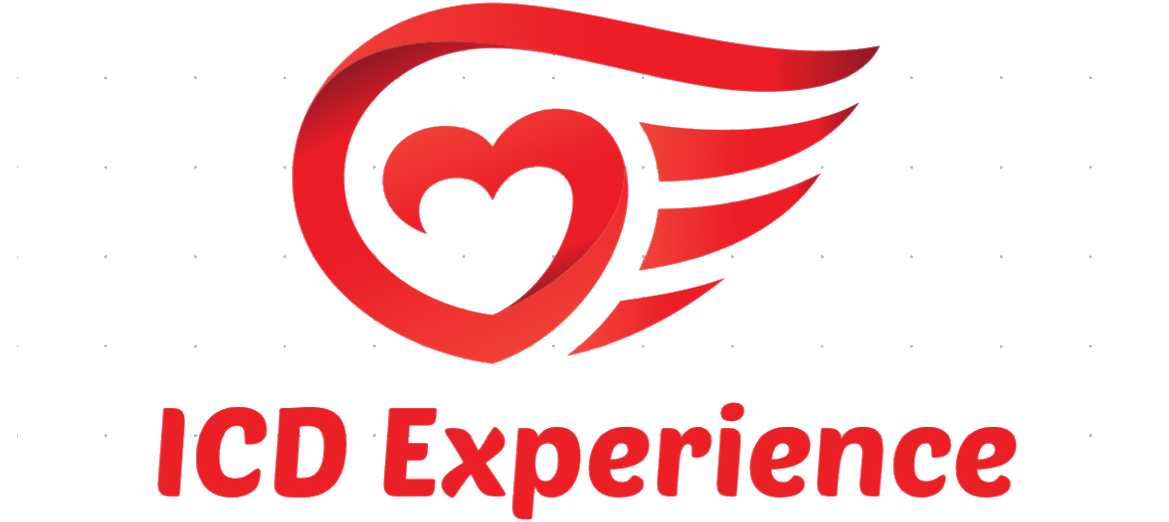Implantable cardioverter-defibrillators (ICDs) are lifesaving devices used to manage serious heart conditions. While the physical benefits of an ICD are clear, the emotional and psychological impacts can be profound. Many patients struggle with their self-identity after receiving an ICD. The journey to rebuilding confidence is complex but achievable with the right strategies and support. This article explores the relationship between ICDs and self-identity, offering insights and practical tips to help patients regain their confidence.
The Psychological Impact of ICDs
Receiving an ICD can be a life-altering experience. The initial shock of the diagnosis, the surgical implantation, and the constant awareness of having a device inside your body can all contribute to emotional distress. Patients often report feelings of vulnerability, anxiety, and a loss of control over their lives. This emotional turmoil can significantly impact one’s self-identity, leading to a diminished sense of self-worth and confidence.
The presence of an ICD serves as a constant reminder of one’s mortality. This can create a heightened sense of vulnerability and fear, making it challenging to engage in everyday activities. Patients may worry about the device malfunctioning, the possibility of receiving shocks, and the implications of their heart condition on their future. These fears can erode self-confidence and lead to social withdrawal and isolation.
Rebuilding Self-Identity
Rebuilding self-identity after receiving an ICD involves a multifaceted approach that addresses emotional, psychological, and social aspects. One of the first steps in this process is to acknowledge and accept the emotions that come with having an ICD. It’s normal to feel scared, anxious, or even angry about the changes in your life. Accepting these feelings as a natural part of the adjustment process can be a powerful step toward healing.
Embracing Your New Reality
Accepting the new reality of life with an ICD is crucial for rebuilding self-identity. This acceptance does not mean resigning yourself to a life of limitations but rather recognizing that while your circumstances have changed, you still have control over how you respond to them. Embracing this mindset can empower you to take proactive steps in managing your condition and reclaiming your life.
One effective strategy is to educate yourself about your ICD and heart condition. Understanding how the device works, its benefits, and its potential risks can demystify the experience and reduce anxiety. Knowledge is empowering and can help you feel more in control of your health. Websites like the American Heart Association and Johns Hopkins Medicine offer valuable resources on living with an ICD.
Setting Realistic Goals
Setting realistic goals is another important aspect of rebuilding confidence. Start with small, achievable objectives that gradually build your confidence and sense of accomplishment. This could include resuming a favorite hobby, engaging in light physical activity, or participating in social events. As you achieve these goals, you can set more challenging ones, gradually expanding your comfort zone.
Physical Activity and Self-Identity
Physical activity plays a significant role in rebuilding self-identity and confidence. Exercise not only improves physical health but also boosts mental well-being. Many ICD patients fear physical activity due to concerns about triggering their device or exacerbating their condition. However, with proper guidance from healthcare providers, most patients can safely engage in physical activity.
Consulting with your doctor to develop a tailored exercise plan is essential. Start with low-impact activities like walking, yoga, or swimming, gradually increasing the intensity as your confidence grows. Our previous article offers guidelines on safe exercises for ICD patients. Regular physical activity can enhance your mood, reduce anxiety, and improve overall self-esteem.
Building a Support System
A strong support system is invaluable in rebuilding self-identity. Surround yourself with family, friends, and support groups who understand your experience and can offer encouragement. Sharing your feelings and experiences with others can provide emotional relief and reduce feelings of isolation.
Support groups, both online and in-person, can be particularly beneficial. Connecting with others who have similar experiences can provide a sense of community and understanding. Organizations like Mended Hearts offer support networks for heart patients and their families. Participating in these groups can help you gain insights, share coping strategies, and feel less alone in your journey.
Professional Counseling
Professional counseling can be an essential component of rebuilding self-identity. A mental health professional can help you navigate the emotional challenges associated with having an ICD. Cognitive-behavioral therapy (CBT) is particularly effective in addressing anxiety and depression. It can help you identify negative thought patterns and develop healthier ways of thinking and coping.
Therapists can also assist in addressing issues related to body image and self-esteem. The presence of an ICD can alter one’s perception of their body, leading to feelings of self-consciousness and discomfort. A counselor can help you work through these feelings, fostering a more positive and accepting self-image.
Mindfulness and Relaxation Techniques
Incorporating mindfulness and relaxation techniques into your daily routine can significantly impact your emotional well-being. Practices such as meditation, deep breathing exercises, and progressive muscle relaxation can reduce anxiety and promote a sense of calm. Mindfulness encourages you to stay present and focused, reducing the tendency to dwell on fears and uncertainties.
Apps like Headspace and Calm offer guided meditation and mindfulness exercises that can be easily integrated into your daily life. Regular practice of these techniques can help you manage stress and enhance your overall sense of well-being.
Finding Purpose and Meaning
Rebuilding self-identity also involves finding purpose and meaning in your new reality. Engaging in activities that bring joy and fulfillment can boost your self-esteem and sense of worth. Consider volunteering, pursuing new hobbies, or engaging in creative endeavors. These activities can provide a sense of accomplishment and contribute to a positive self-identity.
Reflect on your values and what matters most to you. Setting goals that align with these values can create a sense of purpose and direction. Whether it’s contributing to your community, pursuing personal growth, or nurturing relationships, finding meaning in your actions can enhance your confidence and overall well-being. Find more helpful information in our latest article about managing anxiety with an ICD.
Managing Stigma and Misunderstanding
Living with an ICD can sometimes lead to stigma and misunderstanding from others who may not fully grasp the nature of your condition. It’s important to educate those around you and advocate for yourself. Open communication about your ICD and how it affects your life can foster understanding and reduce stigma.
Developing a concise way to explain your condition and its impact can help in social interactions. Be prepared to address questions and concerns from others, and don’t hesitate to seek support from healthcare providers in educating your community. Organizations like Heart Rhythm Society provide resources for patients and their families to better understand heart conditions and ICDs.
Celebrating Progress
Celebrate your progress, no matter how small it may seem. Acknowledge the efforts you put into managing your condition and rebuilding your self-identity. Each step forward, whether it’s a physical achievement, a social engagement, or a personal milestone, is a testament to your resilience and strength.
Keeping a journal can be a helpful way to track your progress and reflect on your journey. Writing about your experiences, challenges, and successes can provide insights and reinforce positive changes. It can also serve as a reminder of your growth and the progress you’ve made over time.
Accepting Help
It’s essential to recognize that rebuilding self-identity is not a journey you have to take alone. Accepting help from others, whether it’s emotional support, practical assistance, or professional guidance, is a sign of strength, not weakness. Lean on your support system and seek help when needed.
If you’re struggling, don’t hesitate to reach out to your healthcare provider for additional resources and support. They can connect you with mental health professionals, support groups, and educational materials to help you navigate this journey.
Looking to the Future
While living with an ICD may present challenges, it’s important to look to the future with hope and optimism. Advances in medical technology and treatment options continue to improve the quality of life for heart patients. Staying informed about these developments can provide reassurance and inspire confidence in managing your condition.
Stay engaged with your healthcare team and participate in regular check-ups to monitor your ICD and overall heart health. Being proactive about your health can give you a sense of control and contribute to your confidence and self-identity.
Conclusion
Rebuilding self-identity and confidence after receiving an ICD is a multifaceted process that requires time, effort, and support. By acknowledging your emotions, educating yourself, setting realistic goals, engaging in physical activity, and building a strong support system, you can regain control over your life and develop a positive self-identity. Professional counseling, mindfulness practices, finding purpose, and managing stigma are also crucial components of this journey. Celebrate your progress, accept help, and look to the future with optimism. With the right strategies and support, you can thrive and live a fulfilling life with an ICD.
For more information on managing life with an ICD, visit our ICD Guide and General Advice sections.













One Comment